
Be honest: when you play Civilization, do you get bored sometime around the Renaissance and start over? If you're the dutiful type, you're in the minority: Firaxis has been collecting statistics, and although unable to share specifics, the dev told me it was "surprised" to discover how few Civilization players had ever finished a game of Civilization. Firaxis has substantially changed Civilization's structure for the next game. In Civilization VII, you no longer begin in the Ancient era, advancing through and beyond the Classical, Medieval, Renaissance, Industrial and Modern eras.
There are just three ages in Civ VII - Antiquity, Discovery and Modern - and the tech tree is simpler.
This might turn out to be the most controversial change since Civilization V ditched unit stacking, or since Civilization VI adopted a cartoonier art style (which has been abandoned for Civ VII). But before the word 'simplified' causes too much anxiety, I should elaborate: I think the changes are exciting, and Firaxis has also added, tweaked and expanded. You can now build towns, not just cities. There are powerful new units called Commanders. You'll find navigable rivers for the first time, so you can have your very own Mississippi or Nile. Features from the Civ V and VI expansion packs are here, including natural disasters.
It's still Civilization, a judgment I arrived at after playing for three hours, and which creative director Ed Beach expresses in numbers. “We’re very mindful of exactly how much we were changing,” Beach said to a group of press, including myself, who were flown to Firaxis’ office in early August to try the game. “You’ve probably heard the Firaxis mantra that 33% of the game stays the same, 33% of it gets updated, and 33% is brand new. We absolutely followed that again.”
LAYER CAKE
Denne historien er fra November 2024-utgaven av PC Gamer.
Start din 7-dagers gratis prøveperiode på Magzter GOLD for å få tilgang til tusenvis av utvalgte premiumhistorier og 9000+ magasiner og aviser.
Allerede abonnent ? Logg på
Denne historien er fra November 2024-utgaven av PC Gamer.
Start din 7-dagers gratis prøveperiode på Magzter GOLD for å få tilgang til tusenvis av utvalgte premiumhistorier og 9000+ magasiner og aviser.
Allerede abonnent? Logg på

A New Dawn - The rise, fall and rise again of PC Gaming in Japan
The so-called 'Paso Kon' market (ie katakana's transliteration of 'Pasonaru Computa') in Japan was originally spearheaded in the 1980s by NEC's PC-8800 and, later, its PC-9800.

MARVEL: ULTIMATE ALLIANCE
Enter the multiverse of modness.
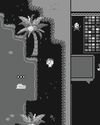
SLIDES RULE
Redeeming a hated puzzle mechanic with SLIDER
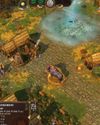
GODS AND MONSTERS
AGE OF MYTHOLOGY: RETOLD modernises a classic RTS with care

PHANTOM BLADE ZERO
Less Sekiro, more Wo Long: Fallen Dynasty

STARR-MAKING ROLE
Final Fantasy XVI's BEN STARR talks becoming a meme and dating summons
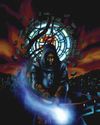
THIEF GOLD
Learning to forgive myself for knocking out every single guard.

HANDHELD GAMING PCs
In lieu of more powerful processors, handhelds are getting weirder
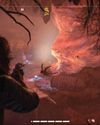
FAR FAR AWAY
STAR WARS OUTLAWS succeeds at the little things, but not much else shines
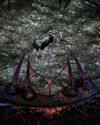
FINDING IMMORTALITY
Twenty-five years on, PLANESCAPE: TORMENT is still one of the most talked-about RPGs of all time. This is the story of how it was created as a ‘stay-busy’ project by a small team at Black Isle Studios